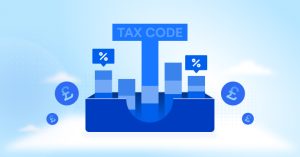Having a second job is an attractive option for many people, as it can bring in extra income and provide more financial security. However, you should be aware of how second job tax works so that you don't end up paying too much.
The amount of tax you pay on your second job will depend on the amount of money you are earning and your total personal income. Generally, if you are earning more than the tax-free allowance of £12,570, then you will be liable for some second job tax. However, the rate of second job tax will vary depending on how much money you earn in total - even if it is within the tax-free allowance.
Do I get Taxed More If I have a Second Job?
The amount of second job tax you pay is calculated in relation to your primary salary. If your second income takes you into a higher tax bracket, then you will be charged more second job tax than if it places you in the same or lower bracket. This means that if your second job pays much more than your first, then yes, you will pay more second job tax.
Do I Need to Tell HMRC if I Get a Second Job?
Yes, it is important to inform HMRC of any second jobs you have. This will ensure that you are paying the correct amount of second job tax and avoid any issues with your taxes in the future.
How Does Second Job Tax Work?
The second job tax rate is calculated on the basis of your combined earnings from both jobs. If you earn more than the basic personal allowance of £12,570 per year, then second job tax will be due at a higher rate. The exact amount of second job tax you pay will depend on your total income, which is why it is important to inform HMRC of any second jobs you have.
You will be objected to the tax on your second through a BR tax code, and this tax code should be used to calculate the second job tax. Basic Rate taxpayers will be charged 20%, while higher rate taxpayers will be charged 40% second job tax.
Does 1250L Tax Code Have Anything to do with the Second Job?
The 1250L tax code is the most common second-job tax code used by HMRC and it is designed to ensure that second-job taxpayers don't pay too much second-job tax. This code works by increasing the basic personal allowance on your second job so that you can reduce the amount of second job tax paid.
Do I Pay National Insurance on Second Job?
Yes, you will be liable for national insurance payments on your second job as per the standard rules. However, if your second job takes you over the contribution threshold of £9,500 per year, then your second job national insurance payments will increase.
Conclusion
It is important to understand how second job tax works so that you can plan accordingly and make an informed decision about taking on a second job. Knowing the amount of second job tax you pay, and how to avoid paying too much second job tax, is essential for making sure you stay on top of your finances. It is also important to remember that second jobs can sometimes mean additional national insurance payments, so it is always worth checking with HMRC before taking on any second job. With the right knowledge and planning, second jobs can be a great way to boost your income and give you more financial security.
Be sure to do your research and take into account second job tax, national insurance payments, and other potential costs involved before making the decision to take on a second job. Doing so will help ensure that you get the most out of your second job without any surprise second job tax surprises. Good luck!













